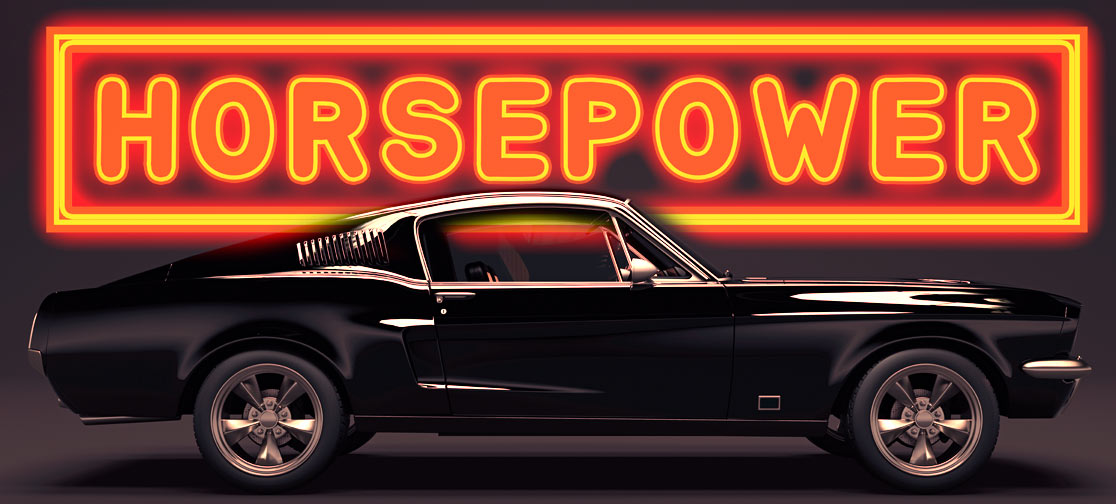
Horsepower - Could It Be A Thing Of The Past?
How the Need For Speed Might Change... Like It Or Not
BY IDA GOWNAW
The 1967 Shelby Cobra, the 1969 Chevy Camaro, the 1971 Corvette Stingray, the 1969 Ford Mustang Super Cobra. These timeless beauties have more in common than the fact that they are likely unattainable as vintage assets to the commoner. They are also machines which, by nature of their very essence, are famed for their daunting horsepower.
As we go about our daily lives - waking up, going to work, paying our bills and doing it all over again the next day - the world as we know it changes. No matter how hard we try to deny it, our day-in and day-out commodities will improve (or at least change) as technology dictates. This includes the automotive world, sometimes fortunately, sometimes unfortunately. Part of that change may soon be horsepower. Once considered a base ingredient in any conversation regarding cars, technology and the “new world” may eliminate the term “horsepower” from our vocabulary forever.

Forty years ago, the amount of horsepower one had in their car displayed a certain sense of, let’s say, how well they were doing in life, how competitive they were, how dominating that person was or even a statement of financial status. Fast forward to 2019 and, shockingly enough, car manufacturers are leading into designs that completely erase horsepower from our vehicles. As mechanization advances, we are seeing less reason for “the need for speed” and more reason for electric vehicles ... At least in the new practical world.

Horsepower sounds great, feels great, heck, it even looks great! But it is rapidly becoming viewed, whether you believe it or not, as yet another cause of detrimental things such as global warming and unhealthy atmosphere for fellow human beings. In a sense, a gun control without the backing of the Second Amendment. However, whether you like it or despise it, electric cars are winning the race over fast and furious, muscle bound, kick-ass, cars.

The argument could be an environmental dispute - keeping our Earth clean and whole for our grandkids and for their grandkids. However, the reality is that, like most things, change is driven by economic factors. If there is a way for auto manufacturers to make more money (sell more vehicles), then that is where the change is going to most likely come from. Making the switch from topmost horsepower to electric vehicles is cheaper in the long run by means of things like gas, repairs, etc. If more consumers are looking for the economy than they are the thrills and chills of raw horsepower, you can bet your bottom dollar the auto industry will notice and has already responded.

Whether a justification or a reality, we can say that the change fits nicely into our daily lives. Rather than making time to head to the dreaded and dirty gas station to fill up, we just plug in first thing in the morning before heading to work. Now we have time to make ourselves a healthy breakfast or kiss the significant other one last time before heading off for the day! There will be convenient charging stations everywhere (for a fee, certainly).In addition to the convenience and the ecological aspects, there is also the simple fact that as another new technology evolves, the self-driving car, speeding past one another will be a thing of the past regardless. Your car will be programmed to “go with the flow” … traffic flow that is.

Although we love our revving loud Mustangs and the torque of our Cobras, electric cars, like it or not, are taking over the vehicle industry. One day at a time, this world will be vacant of gas and full of battery-operated power - meaning that raw horsepower will be left for auto racing… and possibly your new super light jet!

